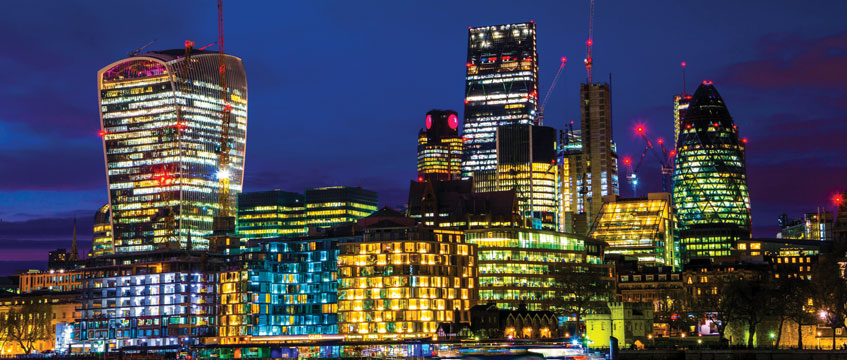A lack of overseas investors, distress and the complexity of transforming potentially obsolete assets into best-in-class space have got the UK’s biggest REITs back in acquisition mode.
This week Landsec and Great Portland Estates reported financial results for the year ended 31 March. Both sets of figures reflected some of their poorest performances for some time. For GPE it was the first time since 2015 that its revenue had dipped below £100m, while Landsec posted its largest loss in 12 years.
But those figures were largely anticipated after Covid effectively closed the world down. Both are now looking to the future and for opportunities to build back better and stronger.
GPE is currently reviewing some £1.7bn of potential acquisitions, up from £1.2bn in 2018 and around £500m in 2020, while Landsec is reviewing a move back into shopping centre investment.
Flex and sustainability
GPE is largely focused on properties that enable it to grow its flex offer – flex currently comprises 13.5% of its office portfolio and is expected to grow to 20% within the next 12 months – and stranded assets – properties that will potentially become obsolete without the proper investment.
“We are always looking for value-add and repositioning plays, albeit they have been really hard to unlock of late because there is a big wall of money looking to buy that kind of asset,” says Nick Sanderson, chief financial and operating officer at GPE. “But the two areas of the market that are looking increasingly interesting to us are flex – we are now looking at buildings where we can accelerate the roll-out of all of our flex products – and sustainability.”
He adds: “We can see and feel the likelihood of there being stranded assets out there that are owned by landlords that don’t get the challenges that sustainability is going to throw at them and are going to look at them exclusively through the lens of challenge rather than through the lens of opportunity.”
Those stranded assets are likely to include the flood of properties that will struggle to meet to meet new government standards, due in 2030, that make any building with an EPC rating lower than a B unlettable and unsellable.
The complexity and cost of bringing those buildings up to standard is levelling the investment playing field for GPE, says Sanderson.
“We feel we have the confidence and the capability to underwrite these kinds of assets because we know what the occupier is going to need,” he says.
Opportunities for the REIT have also opened up as a result of the shutdown of international travel, with 62% of its pipeline of potential acquisitions off-market.
“Because you have an investment market that is very quiet at the moment because of the lack of overseas travel, you’ve got owners of real estate that are not putting assets out there high, wide and handsome because there aren’t many people that can come and have a look at them,” says Sanderson. “Their appetite to have quiet, discreet conversations off-market has gone up. And because the market is very clear on what GPE is looking for and the fact that we have one of the lowest leveraged positions in the market means we have the capacity financially to take down more acquisitions.”
And while GPE does not expect to transact on all of those assets and, depending on price, may not transact on any, it is confident about its ability to deliver growth.
Even without completing on any of its pipeline of potential acquisitions, chief executive Toby Courtauld says the firm is in a strong place, with a projected 104% growth in rent roll just from its four near-term development projects and on-site schemes.
“This business is very well positioned because you always want to be in a place where you have more opportunity than funding available to deliver on an opportunity, because that tells you that you are in a market that is interesting and you’ve got a bunch of people who are uncovering really, really good opportunities,” he says. “And that is exactly where we are today with £920m of capex needs, which is as big as it has ever been.”
Stranded shopping centres
Landsec chief executive Mark Allan is in acquisitive mode too, with a particular focus on stranded shopping centres.
This week Allan said the REIT was eyeing cut-price prime shopping centres, seeing opportunity to acquire as values plummet. The sector is now “on the agenda in a way that it won’t have been in the previous few years,” Allan told EG.
“Retail will offer some regeneration potential, but the shift in our position on retail values is about buying retail as retail, rather than to knock it down and turn it into something else,” he adds. “There isn’t a long list of people with the capital or capability to look at those opportunities. We think these could be interesting opportunities for Landsec in the year or two ahead.”
To send feedback, e-mail samantha.mcclary@eg.co.uk or tweet @samanthamcclary or @EGPropertyNews











